MOROCCO:
Behind the prison walls
Salim Tayssir Melhem
22 May 2025
In 2015, Moroccan prisons saw a sharp increase in suicides.
So the Moroccan prison authorities shared their challenge with DIGNITY.
Over 6,000 prison staff have received training on how to deal with suicide and self-harm. Morocco is the first country in North Africa and the Middle East that has developed an independent policy against self-harm and suicide in prisons.
On this page, you can meet some of the people who have taken the lead in putting in place the joint project on prevention of torture and strengthening health services in Moroccan prisons.
In 2015, Moroccan prisons saw a sharp increase
in suicides.
So the Moroccan prison authorities shared their challenge with DIGNITY.
Over 6,000 prison staff have received training on how to deal with suicide and self-harm. Morocco is the first country in North Africa and the Middle East that has developed an independent policy against self-harm and suicide in prisons.
On this page, you can meet some of the people who have taken the lead in putting in place the joint project on prevention of torture and strengthening health services in Moroccan prisons.
There is a double knock on the tall metal blue gate that slowly opens to reveal the entrance to Arjat 1 prison on the outskirts of the Moroccan capital, Rabat.
The prison has room for 1,200 people, but currently houses 1,425, says prison director Abdelilah Hafa, who greets us at the entrance.
»When we talk about self-harm and suicide in prison, the problem is often linked to overcrowding,« says Abdelilah Hafa and continues:
»A lot has happened in recent years when it comes to self-harm and suicide. Whereas before we used force to deal with mentally vulnerable people in prison, today we have the tools to listen and communicate with them. My staff know what to look for in people in prison and can refer them to the doctor and then a psychologist or social worker,« he says.
This change has not happened by itself.
Arjat 1 prison’s healthcare staff, social workers and prison guards have received training in recent years – like 6,000 others in the Moroccan prison sector – on identifying and dealing with self-harm and suicide among people in prison. And this has had a concrete and positive effect, according to Abdelilah Hafa:
»The social workers, prison officers and health staff communicate and collaborate much better than before to help people in prison and solve their problems. This reduces self-harm. The staff also listen to the people in prison more. It has made a difference,« he says.
Watch prison warden Abdelilah Hafa explain how they prevent self-harm.
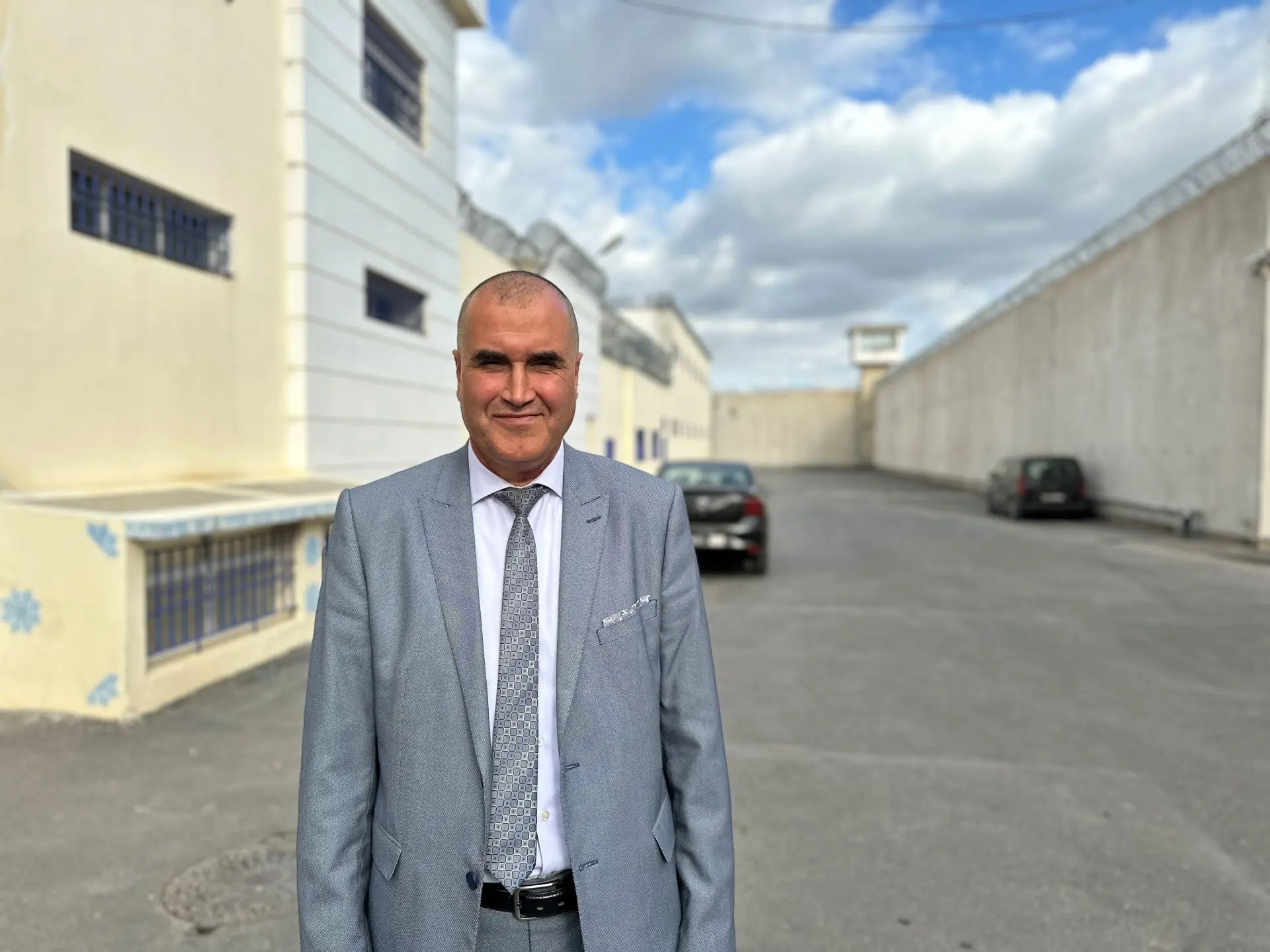
PRISON. Abdelilah Hafa is the prison director of Arjat 1 prison on the outskirts of the Moroccan capital Rabat.
Self-harm in prisons
Like many prisons around the world, Morocco has challenges with self-harm and suicide. Typical self-harm can be when someone intentionally cuts themselves or swallows foreign objects such as batteries or a razor. Levels of self-harm in prisons are often higher than the outside community.
That’s why in 2016, the Moroccan prison authorities (DGAPR) reached out to DIGNITY to understand why and to address the problem of self-harm and suicide in prisons.
One of the driving forces behind the collaboration is Dr. Taoufiq Abtal, director of the health division of the prison authorities.
»When we reduce self-harm and suicide in prisons, we also help ensure the safety and reintegration of people in prison into society after recovery,« he says.
According to Dr. Taoufiq Abtal, people often struggle with mental health and substance abuse issues when they arrive at the prison and therefore end up in involuntary detox and may react violently. That’s why it’s important to stabilize them and take care of their physical and mental health, he points out.
»We offer training, education and activities to prepare the people in prison to return to society after serving their sentence. But if they’re not physically and mentally stable, they can’t participate in the activities regardless of their quality or quantity. That’s why all sectors of the prison work together to prevent self-harm and suicide. From the health staff and psychologists to the social worker, security staff, the prison management, and the officers,« he says, explaining his collaboration with DIGNITY.
MOROCCAN PRISONS
Responsibility for the country’s prisons falls under the ‘General Delegation for Prison Administration and Reintegration’ (DGAPR), which was established as an independent body in 2008 and reports directly to the Prime Minister.
Morocco is one of the countries that is signatory to both the UN Convention against Torture and its Optional Protocol (OPCAT). At the end of 2023, there were 74 prisons in Morocco, housing 102,653 people, mostly adults (99%) and mostly men (98%). One of the biggest challenges for Moroccan prisons is overcrowding, which is currently at 159%. A total of 38,552 (38%) people in prison are awaiting trial.
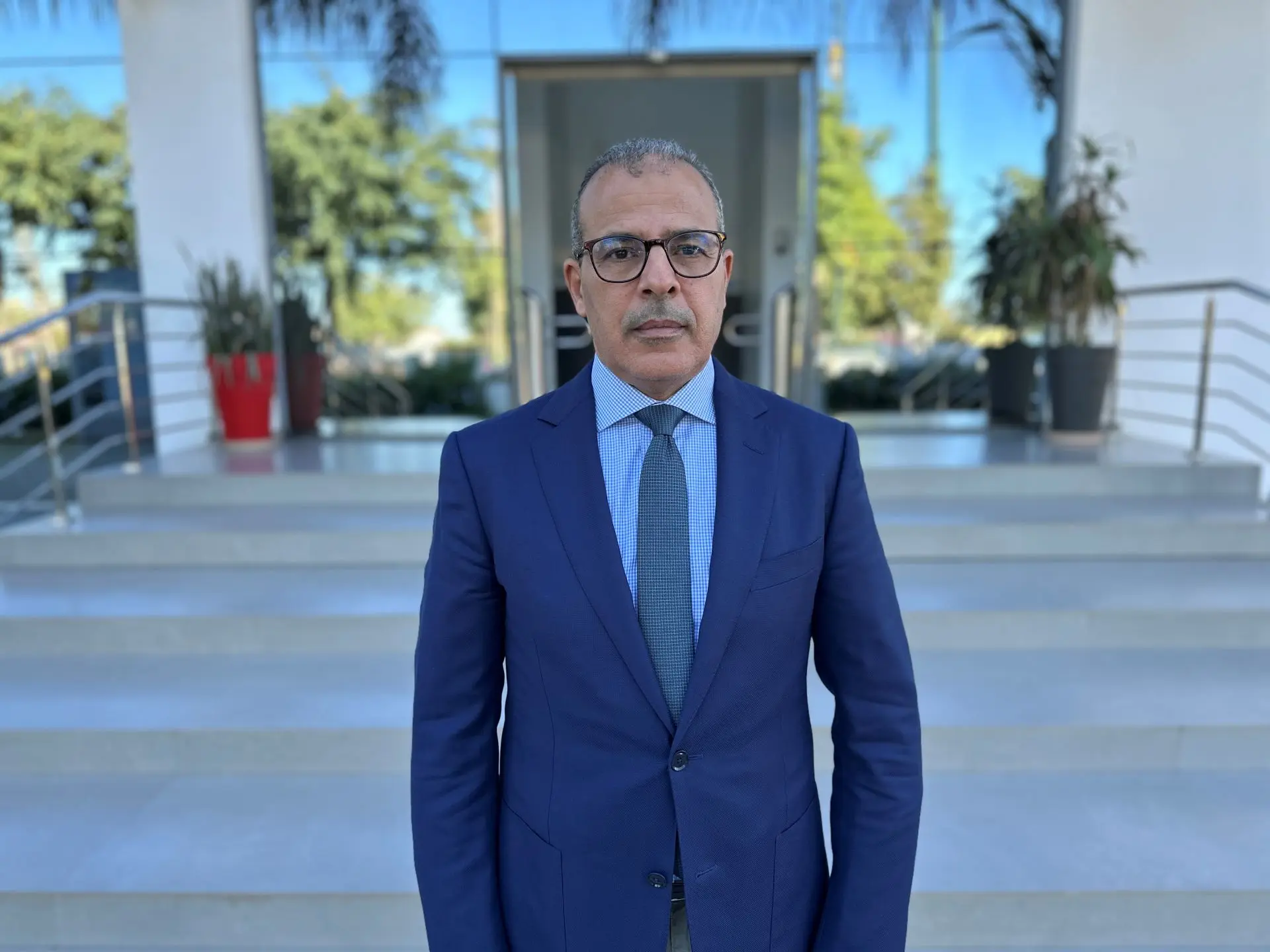
HEALTH. Dr. Taoufiq Abtal is the director of health for the prison authorities in Morocco.
Access to prisons
But how do you reduce self-harm and suicide in a Moroccan prison?
With more knowledge, explains Maha Aon, Senior Health Advisor at DIGNITY.
»We started by investigating what was actually happening in Moroccan prisons. We found that although more men die by suicide than women, suicide attempts and self-harm rates are higher for women in prison,« says Maha Aon, explaining that those serving life sentences and those previously imprisoned are at higher risk of self-harm than others.
»With this knowledge, we set about developing a training program to identify and manage self-harm and suicide. Together with the Moroccan prison authorities, we developed a policy and a manual to prevent and manage self-harm and suicide. This was produced by prison staff in the health, security and social services. The training was not only aimed at the prison health workers, but also the officers, social workers and administration staff at central level who provide support,« she says, emphasizing the importance that prison staff themselves deliver the training to other staff creating local ownership and ensuring sustainability.
‘Master trainers’ were trained, and they go from prison to prison throughout Morocco teaching staff how to manage and prevent self-harm and suicide, explains Maha Aon.
WHAT DO SELF-HARM AND SUICIDE HAVE TO DO WITH TORTURE PREVENTION?
Preventing torture and ill-treatment begins with ensuring humane prison conditions. That is why DIGNITY works with the Moroccan prison authorities to ensure that all people in prison receive prevention and treatment services for physical and mental health.
The partnership is also about preventing torture and other inhumane treatment, which healthcare staff now also screen for when they receive new people in prison. This is done through the initial medical assessment that people arriving to prison undergo. If there are wounds or bruises on their bodies, the institution’s doctor documents these signs at the time and then provides them with appropriate treatment. In parallel, the institution’s doctor delivers this medical document to the prison director to notify the Prosecutor. Over 900 prison healthcare staff were trained in the initial medical assessment, including how to identify and document signs of harm. The documentation is passed on to the prison director and then the state prosecutor.
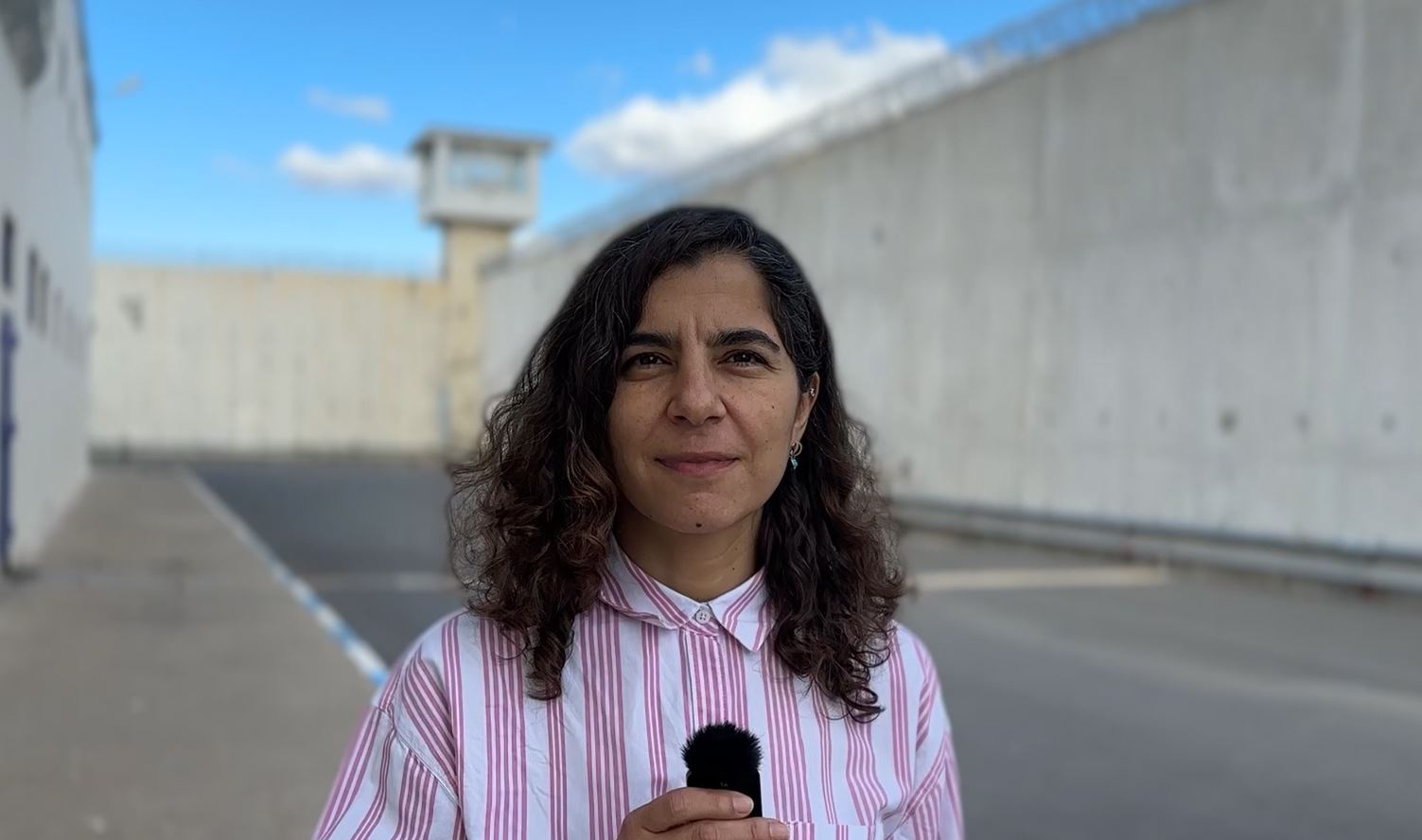
PREVENTION. Maha Aon is Senior Health Advisor in DIGNITY.
Vulnerable people
in prison
One of those who have benefited from the training is the staff at the new Tamesna prison outside Rabat. Here, the management and staff have noticed a clear change in understanding and working with self-harm and suicide.
»When an inmate self-harmed or attempted suicide, we used to rely on individual staff members’ own experiences to deal with it. Today, we have a manual that tells us how to handle it.« says prison director Rachid Moujghid.
Warden Rachid Moujghid talks about preventing self-harm here
Social workers Berdi Abdelhafid and Rania Karimou have also received training, and they see a clear difference in the staff’s approach to mentally vulnerable people in prison who are at risk of self-harm and suicide.
»We can’t help people in prison back into society if they don’t feel well. Today, when we receive new people in prison, we look at their general health. Do they suffer from anxiety? Is there a history of substance abuse? We note this and much more about their health and share our knowledge with the nurse and doctor in here,« says Berdi Abdelhafid.
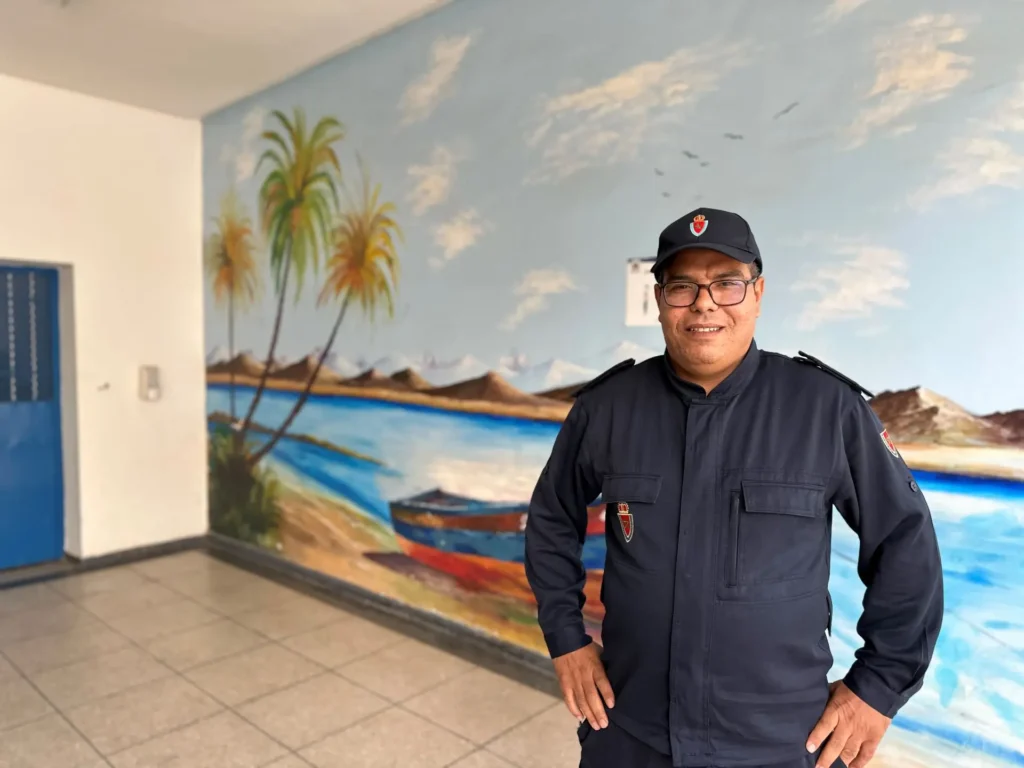
EDUCATION. Berdi Abdelhafid is a social worker at Tamesna Prison and has been trained to manage and identify self-harm and suicide.
According to Rania Karimou, people are often in shock when they arrive in prison for the first time while waiting for their sentence.
»When they end up in our custody, they also lose the ability to contribute to the family financially. They lose their jobs, and the family feels the stigma of having a father or husband in prison. It’s psychologically stressful for them. We are now aware of this and try to help them, so they don’t end up self-harming,« says Rania Karimou.
The two social workers highlight two specific incidents where the training has been particularly beneficial.
One is about a person who was told that he had lost his father. He went back into his cell and constantly banged his head against the wall.
»We tried to calm him down and talked him through the techniques we have learned. We got special permission so that he could call his mother outside normal phone hours. His mother was also allowed to visit him before the allotted visitation date. Because we were accommodating to the man’s needs, he stopped hurting himself. It helped him and we later signed him up for an activity program here in prison,« says Berdi Abdelhafid.
Rania Karimou remembers a woman who became pregnant out of wedlock before she arrived at the prison. When she found out she was pregnant, she began to self-harm. There is often a social stigma associated with children out of wedlock in Morocco, and it is also difficult to document the child in the family register and gain access to health and school.
»The father of the child was also in prison. We facilitated their marriage procedures as they wanted, and we took care of their papers. This meant that they could register the child. We were also allowed to contact the woman’s family and got their consent, which was important to her. I’m particularly proud of that because it made a big difference for her.«
Social worker Nazha Bel Ghazi on supporting detained persons at Arjat 1 prison
Also, in Arjat 1 prison, the social workers are happy with the training.
One of them is Nazha Bel Ghazi:
»When I started working in prison, I knew nothing about self-harm or suicide or how to approach it. That has changed. I’ve learned to communicate better with the people in prison and, if needed, refer them to a psychologist or doctor when I notice risk of self-harm or suicide,« says Nazha Bel Ghazi.
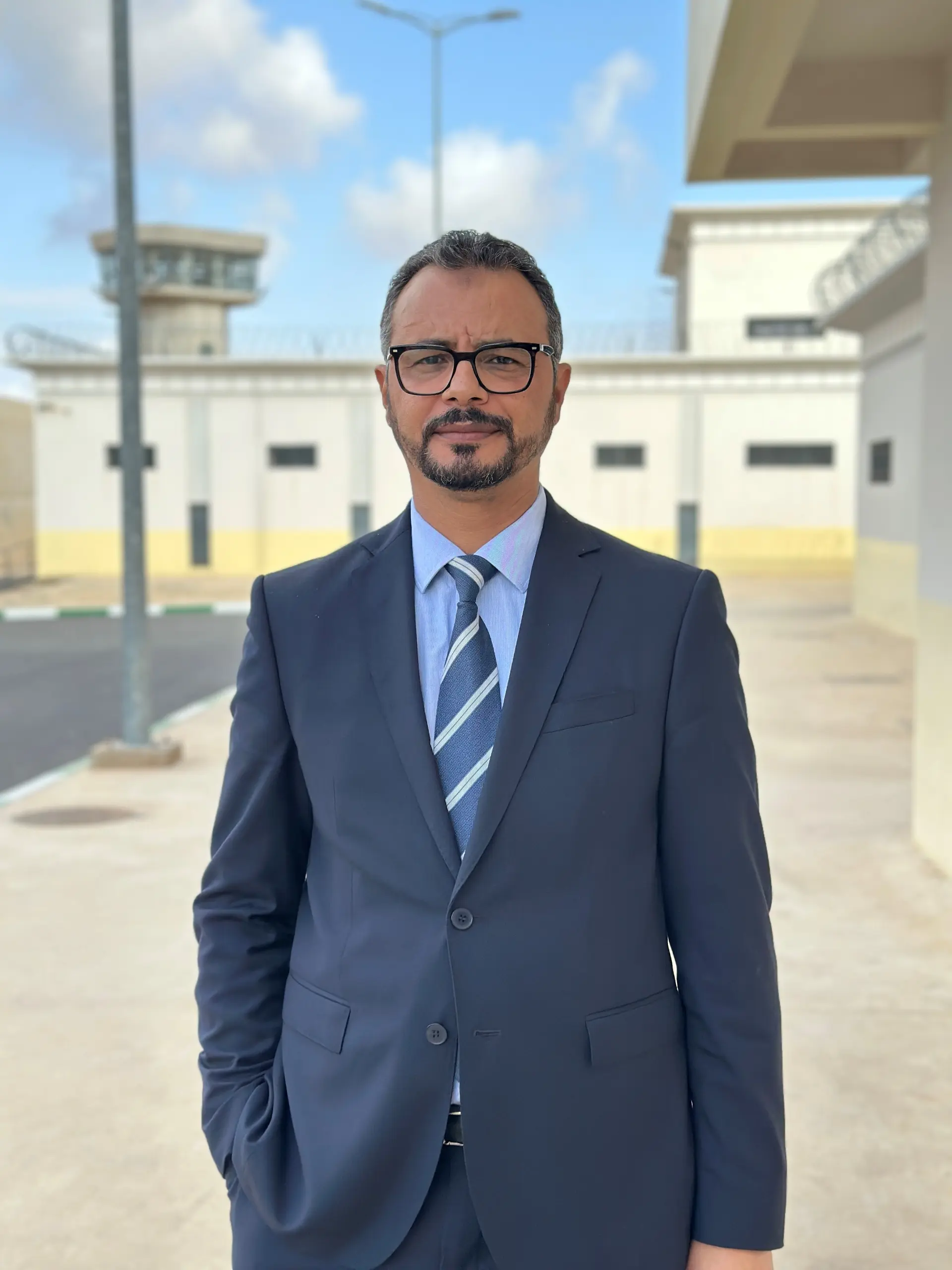
PRISON. Rachid Moujghid is the prison director of Tamesna prison outside Rabat.
The first meeting
The first meeting with a person arriving in prison is crucial to prevent self-harm and suicide, explains prison doctor Loubna Maaroufi from Arjat 1 prison. The initial medical assessment for people entering prison is also important to identify existing health problems and if the person has any signs of harm.
»Many come in with pre-existing conditions. Prison life doesn’t make it better. That’s why it’s important to stabilize people who often can’t afford treatment outside of prison. That’s where we as healthcare professionals need to gather as much information about their health as possible to prevent self-harm,« she says and explains that it’s the nurses who receive new people in prison.
During the project, a question guide was developed for this initial medical assessment to help identify vulnerable people in prison at risk of self-harm or suicide. The guide also includes questions about whether they have signs of physical harm. For example, marks from handcuffs that have left traces. All of this is documented, shared with other staff and forwarded to the prison director.
Prison doctor Maria Lahyani from Tamesna Prison believes that the training and the new monitoring system for self-harm and suicide have also made a difference to the focus that doctors have on self-harm and suicide.
»We often see wounds from razor blades and broken glass. However, we have become better at documenting the cases. Where a small wound used to be treated quickly, we now actively ask about it, document it and inform the other departments in the prison,« says Maria Lahyani and continues:
»People in prison may self-harm when they get bad news. It could be a conviction, news of a death or illness such as HIV or cancer. We are more aware of this today. I think my cooperation with the officers, management and social workers has also improved after the training. Their view of my role as a doctor in prison and the health of the people in prison has also improved,« she concludes.
It’s not just social workers, doctors and prison management who are excited about the training and the new focus – the officers are positive too.
One of those who has seen numerous examples of self-harm and suicide attempts is Hamid Hamdabouir, Head of Security at Arjat 1 prison.
»I’ve worked in five different prisons and seen a lot. I know today that it’s important to have a good relationship with the people in prison. Listening is half the challenge, and when we do that, we can often find solutions that can prevent them from self-harming,« he says.
»The training has helped us change our view on self-harm. We used to think of it as people in prison just causing trouble and seeking attention, but now we understand that it can also be a sign of mental health problems,« says Hamid Hamdabouir.
PRISON LIFE. Two detained persons at Tamesna prison in Morocco are on their way to their cells
Several of the people in prison we spoke to in Tamesna and Arjat 1 prisons say that today they feel they have access to healthcare staff if they need it.
One of those detained with a history of self-harm tells us:
»I meet with the psychologist once a week. We talk together. And I tell her how I feel. She gives me good advice on how to get back to my life and be there for my child outside of prison,« she says and emphasizes:
»I dream of getting out of prison. My dream is to become a flight attendant and travel the world.«
Dr. Maria Lahyani on Health Care in Tamesna prison
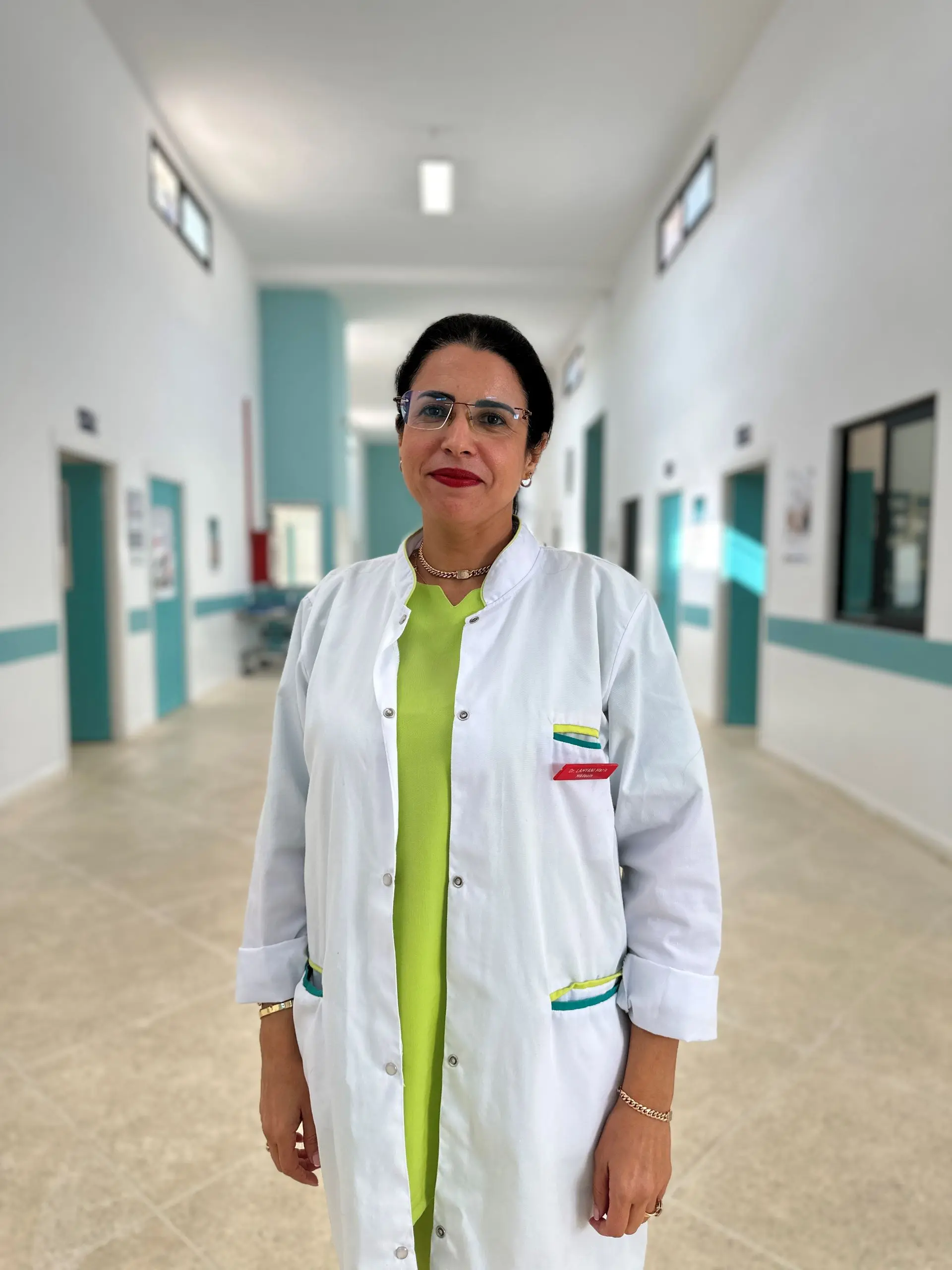
HEALTH. Maria Lahyani is a doctor at Tamesna prison, where she treats detained persons.
We're not there yet
Today, Morocco is the first country in North Africa and the Middle East to develop an independent policy against self-harm and suicide in prisons.
Among other things, this also means that all prison staff now receive training in dealing with self-harm and suicide among people in prison as part of their basic and continuous training. This applies to all 74 prisons in the country.
According to DIGNITY’s Maha Aon, this is an important step towards ensuring good prison conditions.
Dr. Taoufiq Abtal, the head of the health division of the prison authorities, agrees.
»Our collaboration with DIGNITY is important. Because the work against self-harm and suicide requires the involvement of all sectors of the prison. And everyone has a role to play to ensure the health and safety of people in prisons, and thereby their reintegration into society. It’s the same approach when we talk about the work against torture and inhuman or degrading treatment, which is now also part of the question guide that all new people entering the country’s prisons receive.«
How does the work to prevent self-harm and suicide relate to efforts against torture and inhumane treatment?
»The role of health care is to support the health and safety of people in prison. The initial medical assessment is a major step to evaluating new detainees’ physical and psychological state.
If during this assessment the doctor finds wounds or bruises on the person’s body, they must both treat and document these signs«, Dr. Taoufiq Abtal says and adds:
»The doctor sends this document to the prison director who notifies the public prosecutor.
The assessment also helps identify risk factors for suicide and self-harm so the appropriate measures can be taken. Our work with DIGNITY so far has additionally enabled the creation of a medical surveillance system so that we can now document in detail, and report to headquarters so the appropriate actions can be taken.«
Tamesna and Arjat 1 prison are relatively new. How do you ensure that all the country’s prisons have the same standard of health and prevention of self-harm and suicide when it comes to preventing torture and inhumane treatment?
»We now train in every prison in the country, and we have a national policy and manual on the prevention of suicide, suicide attempts and self-harm for all prisons. We keep a constant eye on the prisons to monitor implementation of the manual. Of course, there will always be a human element. Any change may be met with some hesitation by some employees. Therefore, the proper implementation of this guide can only be ensured by sensitizing prison staff and communicating with all relevant prison services, as well as through field monitoring by the health care department.«
»As for combating torture and inhuman treatment, there is a national mechanism for the prevention of torture, which is an independent constitutional body, concerned with monitoring places of deprivation of liberty, including prisons. We are fully aware that the task is not easy, but we are determined to properly implement the guide for the prevention of self-harm, attempted suicide and suicide in prisons. We are on the right track.«
According to Dr. Taoufiq Abtal, there is a need to constantly update techniques and knowledge about self-harm and suicide to continue to create positive results:
»I now see how our work is being embraced by the staff in the prisons. Many of the staff were skeptical in the beginning. Now they see that the manual on suicide, suicide attempts, and self-harm supports and facilitates their work and benefits the whole prison. We see more and more staff reporting cases of self-harm and suicide. Our knowledge is now part of the national prison staff training curriculum. This gives me hope. It shows the change that has happened.«
What gives hope? Dr Taoufiq Abtal, Director, answers that here.
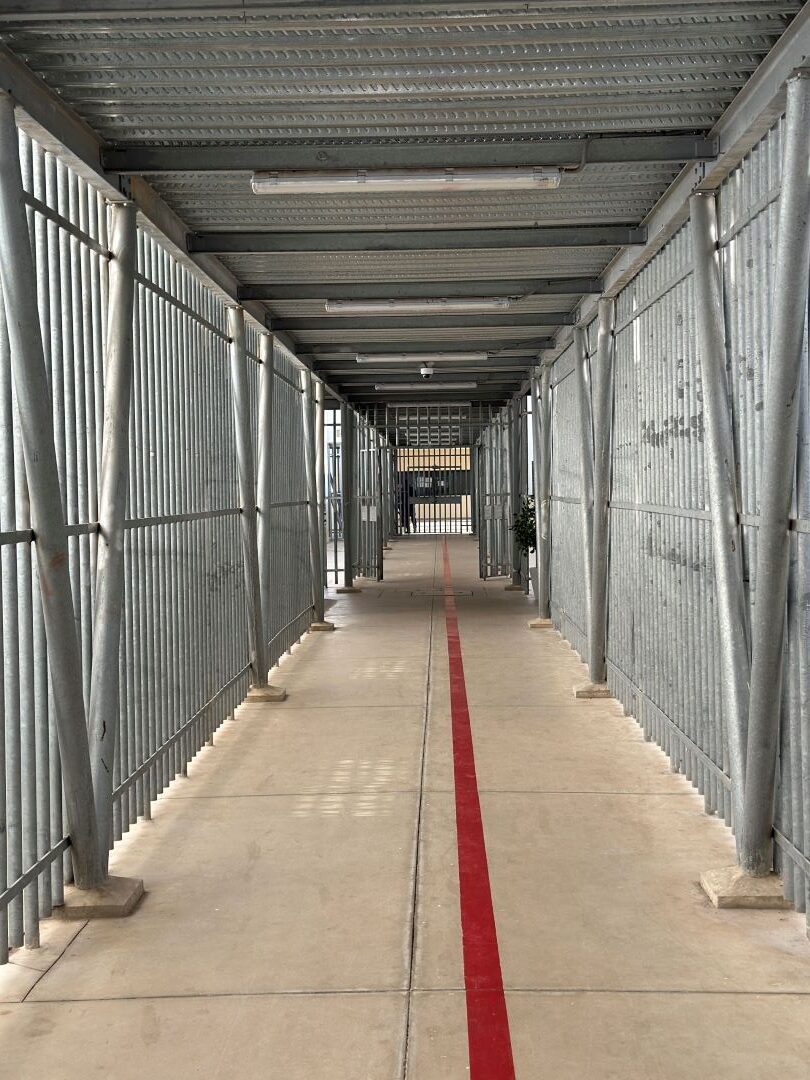
TRAINING. »We now train in all prisons in the country and we have a national policy and manual for all prisons,’ says Dr Taoufiq Abtal«.
HOW DIGNITY AND PRISON AUTHORITIES IN MOROCCO WORK TO PREVENT SELF-HARM AND SUICIDE:
The project began in 2017, when DIGNITY together with the Moroccan prison authorities (DGAPR) first started researching suicide and self-harm in Morocco. Based on this new knowledge, DIGNITY and DGAPR developed a national policy and a manual for prison staff to prevent self-harm and suicide. This manual was piloted in three prisons. Subsequently, the national policy and manual were adopted in Morocco in 2019.
DIGNITY then trained a multidisciplinary team of Master Trainers from the prison sector to develop a curriculum for prison staff to prevent and manage self-harm and suicide. They have now trained over 6,000 employees in the prison sector. A national suicide and self-harm surveillance system has since been established to monitor the results of the intervention.
The project is supported by the Open Society Foundation and the Danish-Arab Partnership Program (DAPP), which is Denmark’s cooperation program with the Middle East and North Africa.
Read more about our work in Morocco


DIGNITY –
Danish Institute Against Torture
Bryggervangen 55
2100 Copenhagen Ø
Phone: +45 33 76 06 00
[email protected]
CVR: 69735118
EAN: 5790000278114
Konto: 4183 4310821209
